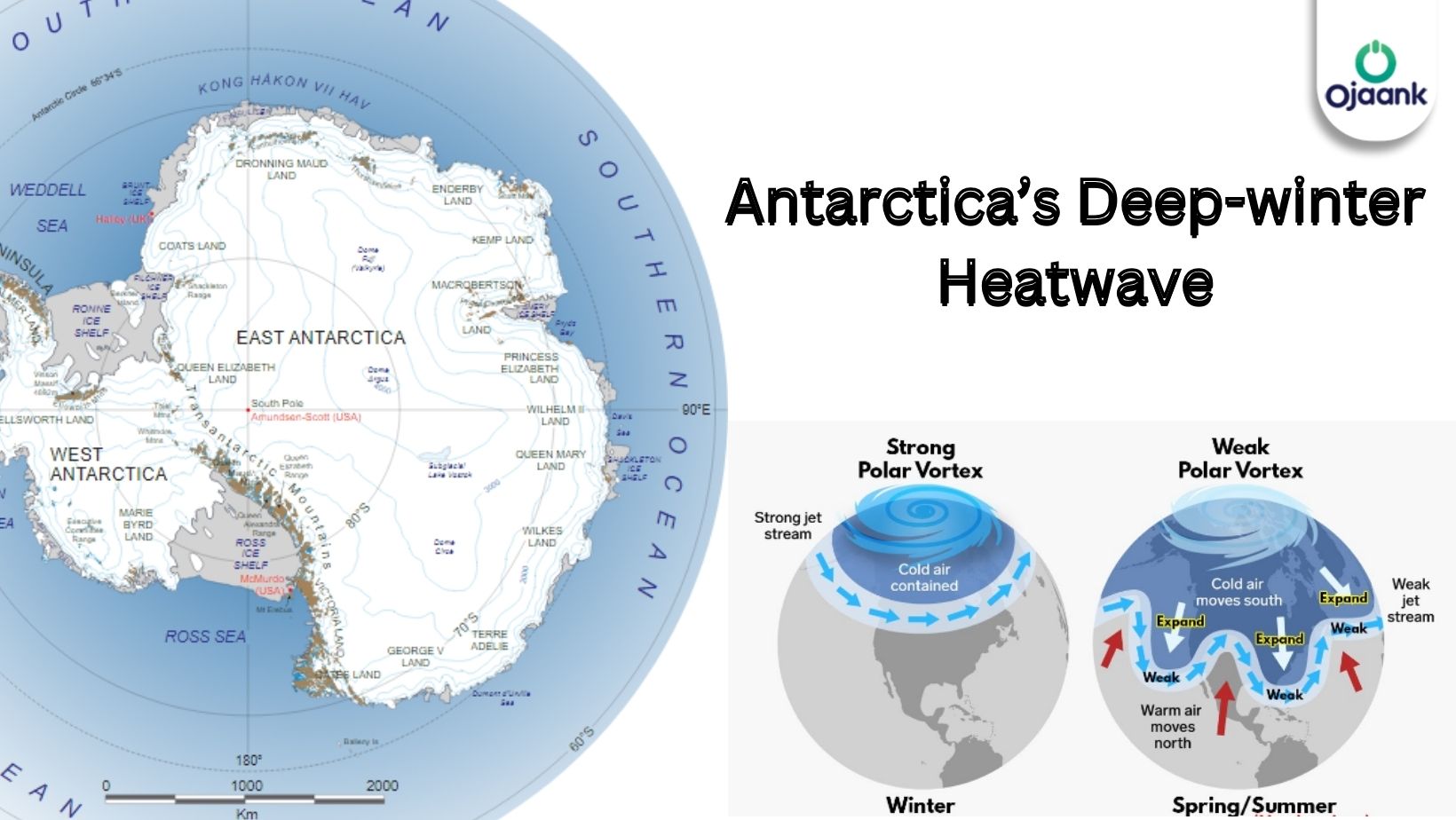Antarctica’s Deep-winter Heatwave

Antarctica's Deep-winter Heatwave Shatters Temperature Records Once Again
Table of Contents
Introduction
For the second time in two years, a record-breaking heatwave is sweeping through Antarctica at the height of its winter season. This unprecedented event, known as Antarctica's deep-winter heatwave, has left scientists and climate experts astounded. The occurrence challenges our understanding of the continent's climate and raises concerns about the accelerating pace of global warming.
Understanding Antarctica's Climate
Before delving into the details of the deep-winter heatwave, it's crucial to understand Antarctica's typical climate:
-
Geography: Antarctica is one of Earth's seven continents and contains the geographic South Pole.
-
Size: It's the 5th largest continent, covering approximately 14 million square kilometers.
-
Climate: Antarctica is known for being the coldest, driest, and windiest continent on Earth.
-
Precipitation: Most of Antarctica is classified as a polar desert, with annual precipitation of only 200 mm or less.
-
Temperature extremes: The continent holds the record for the lowest measured temperature on Earth at −89.2 °C (−128.6 °F).
-
Coastal vs. Inland temperatures:
-
Near the coast: Temperatures can exceed 10 °C in summer and fall to below −40 °C in winter.
-
Over elevated inland areas: Summer temperatures may rise to about −30 °C but can plummet below −80 °C in winter.
-
-
Water resources: Approximately 70% of the world's freshwater reserves are frozen in Antarctica's ice sheets.
Given these extreme conditions, any significant deviation from the norm, such as Antarctica's deep-winter heatwave, is cause for concern.
The 2023 Deep-winter Heatwave
In July 2023, Antarctica experienced an extraordinary heatwave during its winter season. This event, now known as Antarctica's deep-winter heatwave, saw temperatures soar to unprecedented levels for this time of year. Key points include:
-
Temperature anomalies: Some areas recorded temperatures up to 40°C above the seasonal average.
-
Duration: The heatwave persisted for several days, much longer than typical weather fluctuations.
-
Geographical extent: The warm air mass affected a significant portion of the continent, including both coastal and inland regions.
-
Ice shelf impact: Rapid melting was observed on several ice shelves, particularly in West Antarctica.
Comparing to the 2021 Heatwave
This is not the first time Antarctica has experienced such an event. In March 2021, another significant heatwave occurred, although during the Antarctic autumn rather than winter. Comparing the two events:
-
Timing: The 2021 event occurred in autumn, while the 2023 heatwave struck in the depths of winter.
-
Temperature records: Both events broke temperature records for their respective seasons.
-
Frequency: The occurrence of two such extreme events within two years is unprecedented in recorded Antarctic history.
-
Scientific concern: The increasing frequency of these events has heightened scientific alarm about the pace of climate change in polar regions.
Causes of Antarctic Heatwaves
Several factors contribute to the occurrence of Antarctica's deep-winter heatwave:
-
Atmospheric rivers: Long, narrow bands of atmospheric moisture that can transport warm air from lower latitudes to the Antarctic region.
-
Climate change: Global warming is amplifying the intensity and frequency of extreme weather events, including polar heatwaves.
-
Ozone depletion: The ozone hole over Antarctica can affect atmospheric circulation patterns, potentially contributing to warming events.
-
Ocean warming: Warmer ocean temperatures around Antarctica can influence air temperatures on the continent.
-
Natural variability: Some degree of temperature fluctuation is normal, but the extremity of these events suggests additional factors at play.
Impact on Antarctic Ecosystems
Antarctica's deep-winter heatwave has significant implications for the continent's fragile ecosystems:
-
Wildlife disruption: Unusual temperatures can disrupt the breeding and feeding patterns of Antarctic species like penguins and seals.
-
Vegetation changes: Warmer temperatures may allow non-native plant species to establish themselves, altering local ecosystems.
-
Ice shelf instability: Rapid melting during heatwaves can accelerate the breakup of ice shelves, affecting local habitats.
-
Marine ecosystem changes: Alterations in sea ice patterns can affect krill populations, a crucial component of the Antarctic food web.
Global Implications
The impacts of Antarctica's deep-winter heatwave extend far beyond the continent itself:
-
Sea level rise: Accelerated melting of Antarctic ice contributes to global sea level rise, threatening coastal communities worldwide.
-
Global weather patterns: Changes in Antarctic climate can influence global atmospheric and oceanic circulation patterns.
-
Climate feedback loops: Melting ice exposes darker land or water surfaces, which absorb more heat, potentially accelerating warming.
-
Scientific understanding: These events provide valuable data for improving climate models and our understanding of global warming processes.
Conclusion
Antarctica's deep-winter heatwave of 2023, coming just two years after a similar event in 2021, serves as a stark reminder of the rapidly changing climate in one of Earth's most extreme environments. As we continue to monitor and study these unprecedented events, it becomes increasingly clear that urgent action is needed to address global climate change and its far-reaching consequences.
The occurrence of such extreme events in Antarctica, long considered a bastion of cold and stability, underscores the global nature of climate change. It highlights the interconnectedness of Earth's climate systems and the potential for cascading effects that can impact ecosystems and human societies worldwide.
As research continues, scientists stress the importance of reducing greenhouse gas emissions and implementing adaptive strategies to mitigate the impacts of climate change. The fate of Antarctica's ice sheets, and by extension, the future of our planet's climate, depends on our collective actions in the coming years.
Learn more about climate change and its impacts